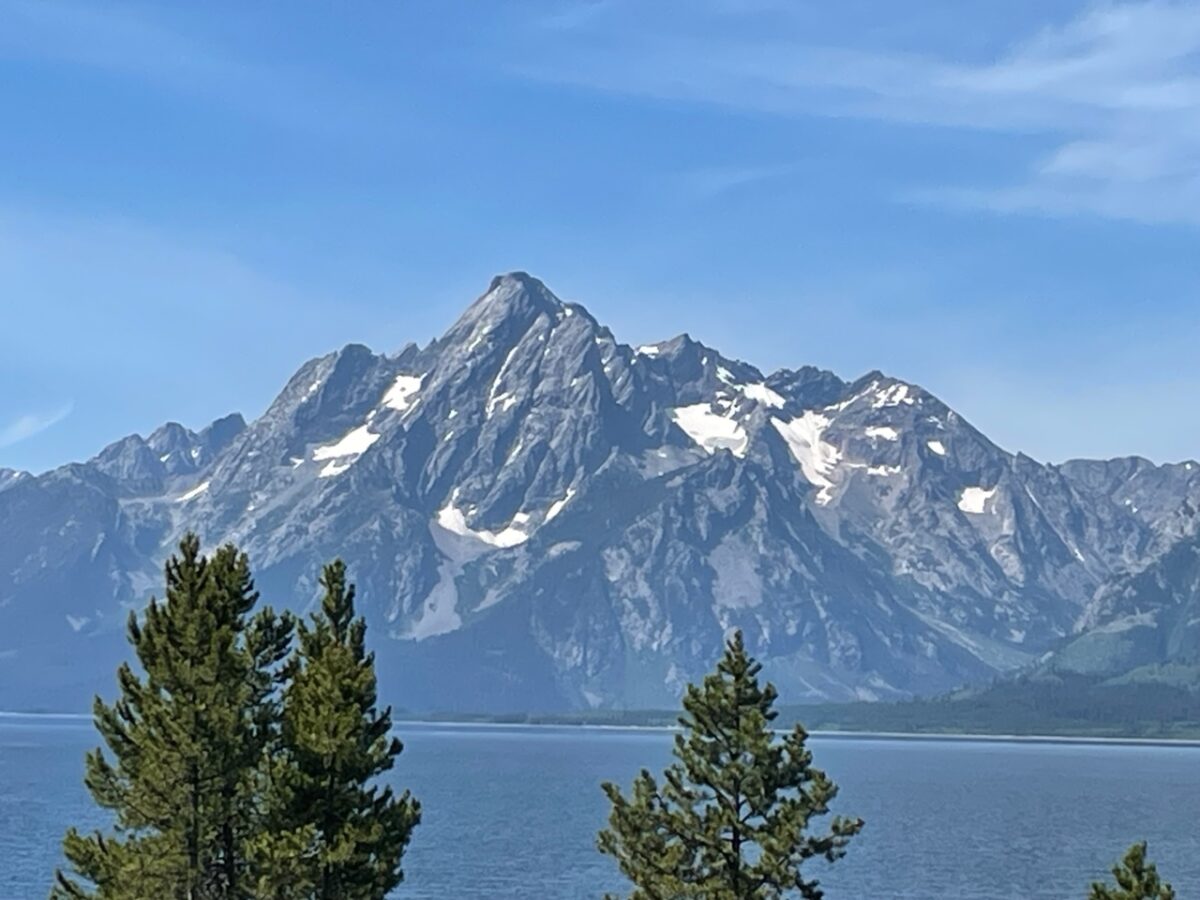In August, PSI Director of Special Projects Michael Kern was invited by the University Network for Collaborative Governance (UNCG) to discuss the research questions driving the Collaborative Leadership Project at the UNCG Scholarship Retreat. The retreat was held at the University of Wyoming’s AMK Ranch in Grand Teton National Park. It was attended by about 20 top academics and practitioners in the field of collaborative governance, from universities across the country.
Michael provided the attendees with a brief overview of the project, explaining it is intended to capture Washington’s 50-year history of collaborative policy making on natural resources through filmed interviews with conveners, sponsors, participants, and practitioners (in partnership with TVW, WA’s public affairs broadcaster, and a diverse and growing set of project sponsors); distill those interviews into a documentary film that tells the story for broad audiences; and build on that work to explore how we can best foster and support collaborative leadership for current and future generations. You can read about this in more detail at the project’s website, or in a February blog post.
Michael then presented the research questions that the project is intended to explore, related to leadership and the role it plays in fostering collaborative processes. Those questions include:
- What does collaborative leadership mean?
- What does it take to create and foster environments where collaborative approaches flourish and persist?
- Do we have the leaders we need? Does it take charismatic and “larger than life” figures to spur and/or maintain new movements? Or do these leaders emerge naturally each generation, and seem “larger than life” only in retrospect?
- Have you observed an “arc,” either in individual projects or in the field as a whole, where receptivity to and/or effectiveness of collaboration seems to wax and wane? Do you see one now?
- Where do you think we are as a field? Where do you see us going? How much difference will the type of leadership we exercise affect that?
- Does our field need different leadership? From us and/or from different leaders?
The response to the project and these research questions among the thought leaders in attendance was highly favorable, spurring vigorous discussion, requests to remain informed, and offers to help. This included exploring connections to the larger literature on adaptive leadership, identifying funding sources, and suggestions for places to screen the documentary film that will result.
If you are interested in being involved, or would like to support the Collaborative Leadership Project as it continues to both capture the history of collaborative policy making in the State of Washington, and explore the conditions under which collaboration can continue to flourish, visit our web page or contact Michael Kern at mkern@uw.edu.
